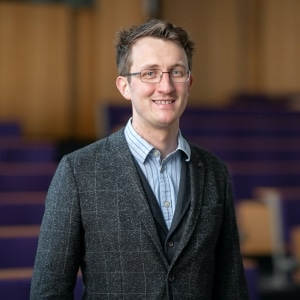Tell us a bit about yourself – what was your PhD about and where did you study?
I explored the fundamentals of how titanium deforms using electron microscopy and mechanical testing. Titanium is used in the front of a jet engine as the turbine fan and discs (used to hold the fan blades), where strength and weight are very important.
What do you do now? What did you decide to do next after gaining your PhD?
I am now a Senior Lecturer (equivalent to an ~Associate Professor) in Materials Science and Engineering at Imperial College London. After my PhD, I continued in academia branching out to understand how materials work in high-risk high-value application, such as aerospace, oil & gas, and nuclear power.
Has having a PhD helped in developing your career? If yes, what has been the biggest impact? If no, why do you think that is?
A PhD provides a framework to train you to develop new problem solving approaches, read and digest literature, and communicate with colleagues. You also gain specialist technical knowledge, which may be useful (especially as an academic) but as my research area meanders, the skills and connections are as important as the basic scientific understanding developed.
What’s one piece of advice that you’d offer prospective students considering a PhD?
You will never know when you bump into your fellow PhD students later in life. Treat them kindly and support each other.
And what one thing would you suggest that new PhD graduates should do next?
Explore their options and don’t rush their choices, but overall get paid and don’t let others take your skills and know-how for granted.
Lastly, what’s your favourite memory from your time as a PhD student?
I never had a Eureka moment, as it was a gradual nudge towards understanding more and more. Submitting the PhD thesis was a relief, and in retrospect I enjoy that this reflects the journey, with ups and downs, which were filled with big and little adventures with friends and colleagues.
Want to know more about Ben?
Visit his website and follow him on Twitter using the links below:

